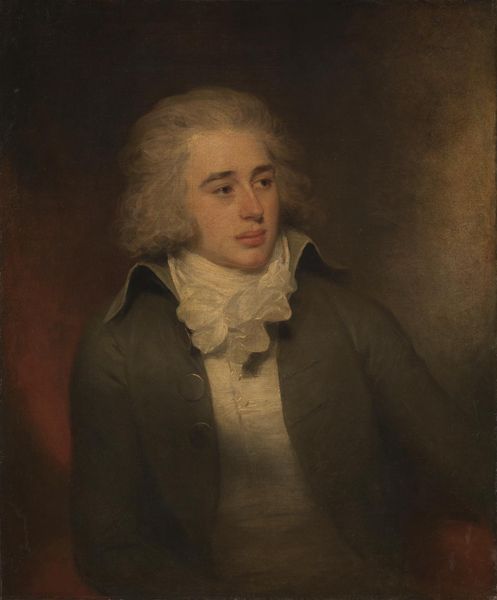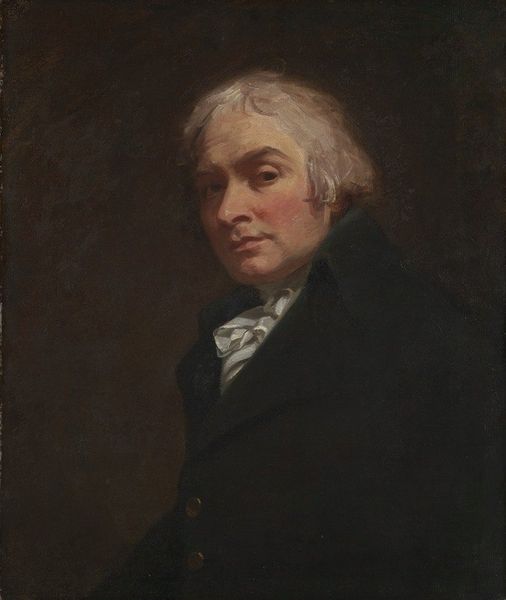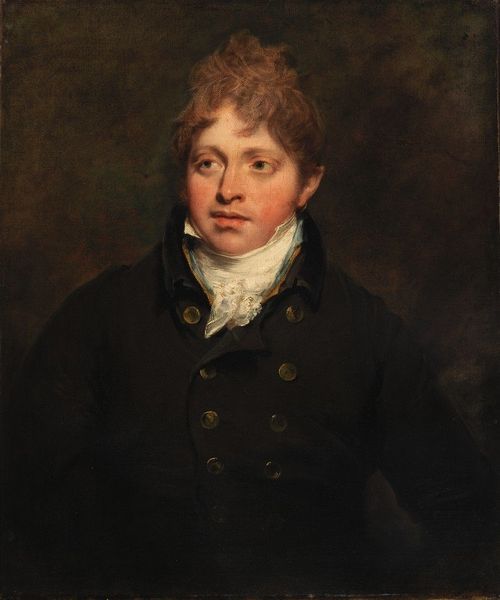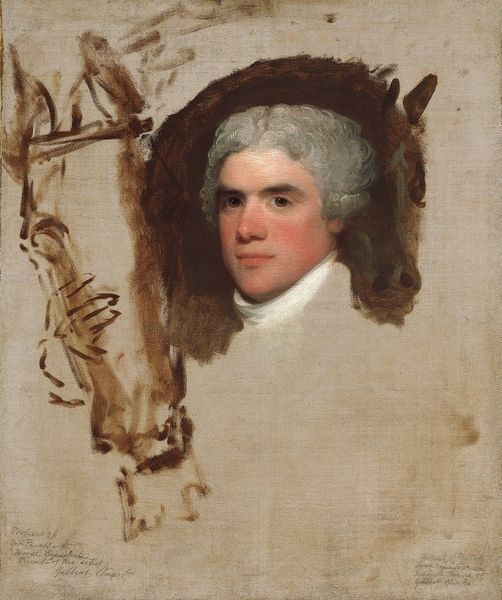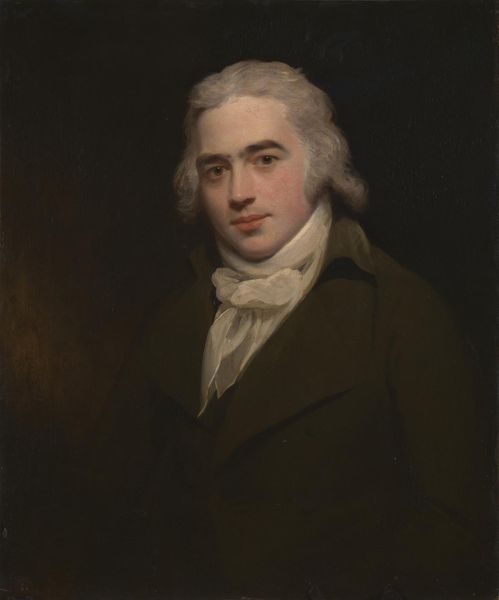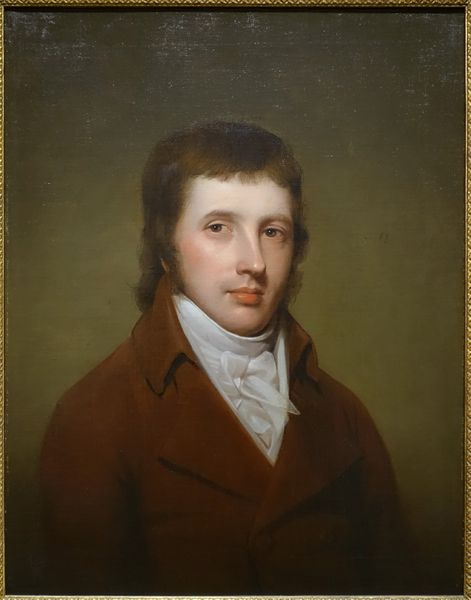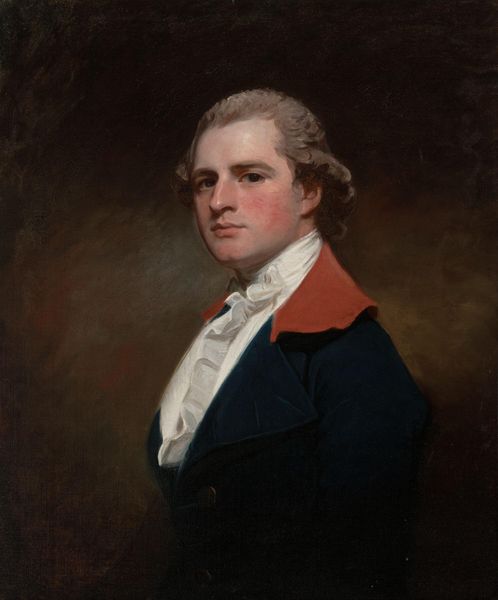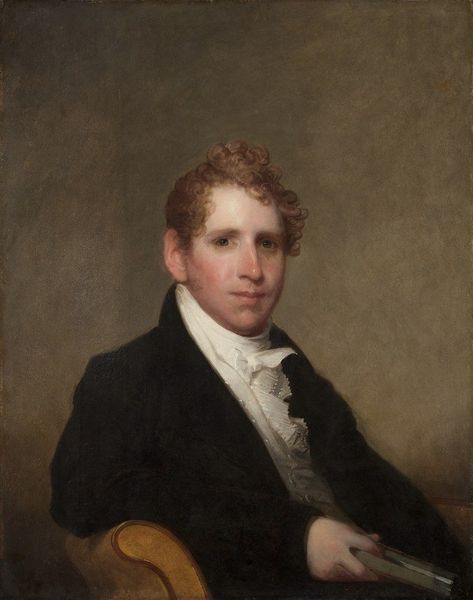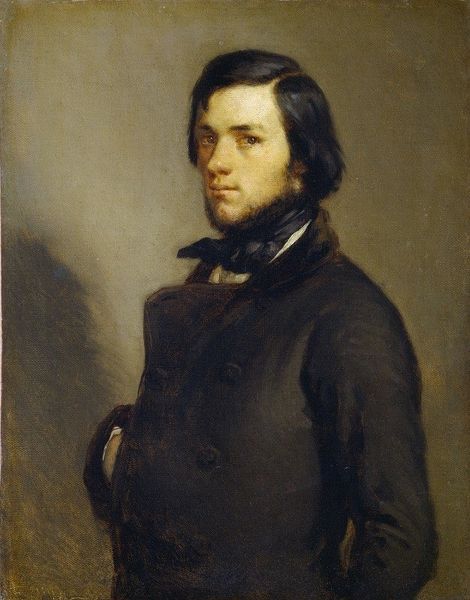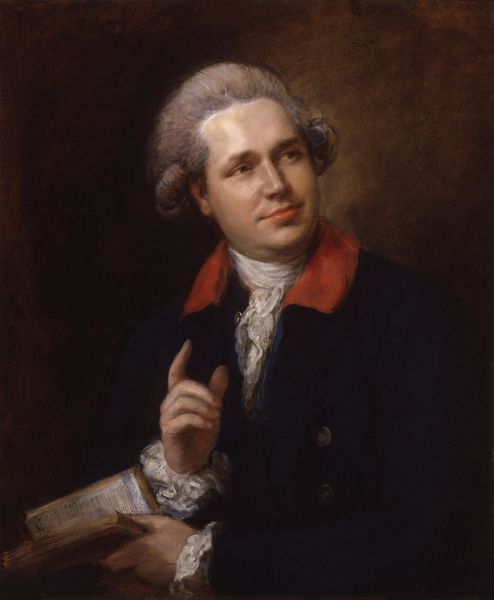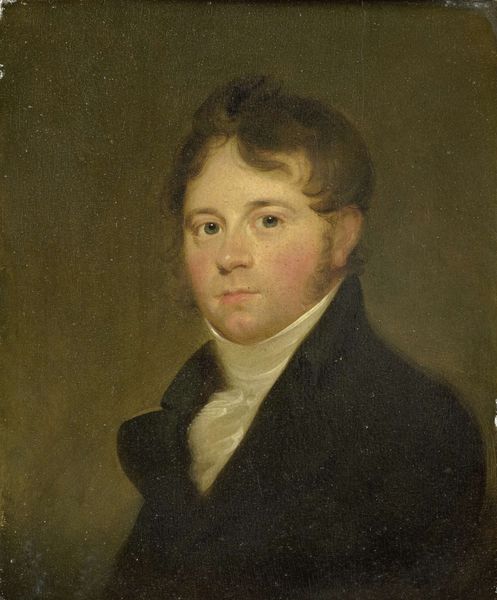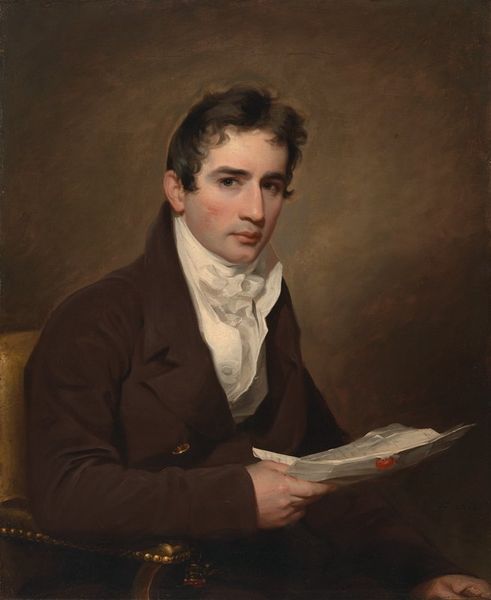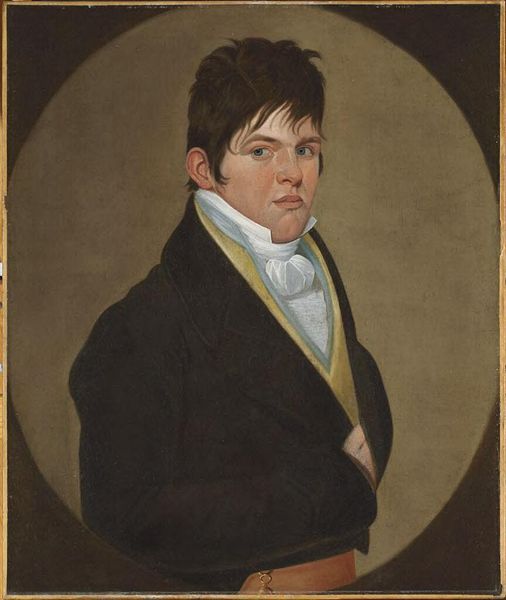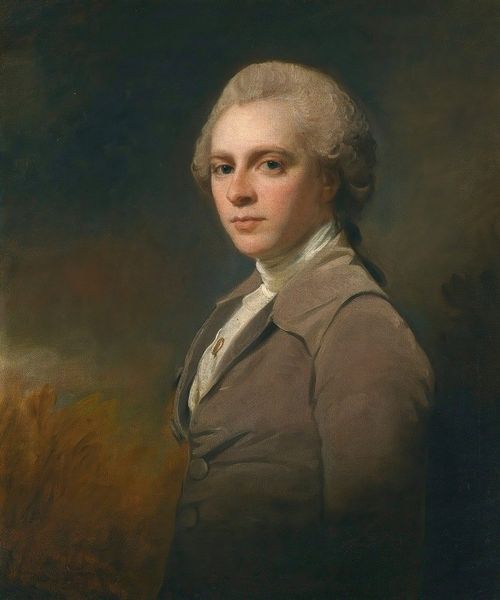
Dimensions: support: 765 x 635 mm
Copyright: CC-BY-NC-ND 4.0 DEED, Photo: Tate
Curator: Here we have Sir William Beechey’s oil on canvas portrait of Thomas Law Hodges, currently held in the Tate Collections. Editor: It strikes me as melancholic, almost unfinished, with that blurry, atmospheric background. The subject appears contemplative. Curator: Note the direct gaze. In the Romantic era, this sartorial style combined with the neutral backdrop often signified a connection to nature and introspection, rejecting the elaborate court portraiture of the past. Editor: The brushwork is quite expressive; see how Beechey models the face with light and shadow. The composition is also interesting, cutting off at mid-torso—a device to focus attention. Curator: It’s a symbolic departure, really. Hodges, a man of the land, is portrayed as a gentleman, yet free from aristocratic excess, a new ideal of the era. Editor: Perhaps it's the diffused light, but there's a sense of quietude here that's very appealing. Curator: Absolutely. It speaks volumes about shifting social values through visual language.
Comments
tate 9 months ago
⋮
http://www.tate.org.uk/art/artworks/beechey-thomas-law-hodges-n04688
Join the conversation
Join millions of artists and users on Artera today and experience the ultimate creative platform.
tate 9 months ago
⋮
Thomas Law Hodges (1776–1857) of Hemsted Place, Cranbrook, Kent, was for many years a Member of Parliament for that county. An old inscription on the back states that the sitter is 18 years old. This would date the picture to 1794, so that it is probably the portrait of ‘Mr Hodges’ which Beechey exhibited at the Royal Academy in 1795. Hodges’s family were long-established as landowners in Dorset and Gloucestershire. He had a privileged upbringing, educated at Harrow and Emmanuel College, Cambridge, where he was admitted in 1794, perhaps the occasion for this portrait being made. Gallery label, February 2016
